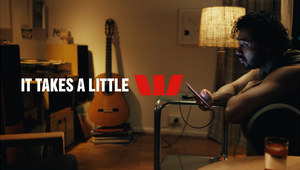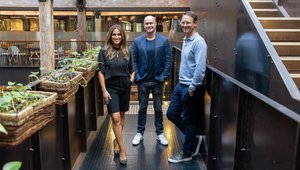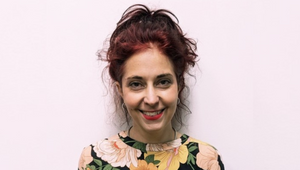
Planning For The Best: "Get Out of Your Bubble' with Jessica Sutanto

Jessica Sutanto is a planning director at creative agency BMF, where her work flexes between creative strategy and behaviour change across diverse sectors. Her broad client portfolio ranges from QSR to financial services, entertainment to FMCG and Federal Government. She has led a number of award-winning campaigns for clients such as the Department of Social Services and Westpac.
LBB> What do you think is the difference between a strategist and a planner? Is there one?
Jessica> I once had the title ‘strategy planner’, just to be safe, and that sums it up for me. There probably was, once - big picture versus tactical, upstream versus downstream - but now I don’t think so. Now we need to be able to do both and then some. Different jobs need all different types of planning / strategy, so we’re all developing that breadth.
LBB> And which description do you think suits the way you work best?
Jessica> Strategy planner is such a mouthful, so if I really had to pick, probably planner because it feels more approachable and collaborative…maybe a bit less pretentious. Planner also feels a bit more hands on throughout the process, less a handover document agonised over solo, and more a nosy partner.
LBB> We’re used to hearing about the best creative advertising campaigns, but what’s your favourite historic campaign from a strategic perspective? One that you feel demonstrates great strategy?
Jessica> For me, great strategy is one you can see in the creative execution and gets you in the gut. It shouldn’t be this complicated hidden bit of subconscious voodoo, but a simple reframe that makes you go ah.
Nike’s ‘Find Your Greatness’ is a classic on so many levels. It hits the sweet spot in a big cultural moment, is an enduring execution off their mission, and distinct in a category which inspires through athletes at the top of their game. The tactics around timing and consumer sentiment are exceptional. Having just lost the Olympics sponsorship to Adidas,
Nike didn’t play in the same arena. They took advantage of a time where normal people were inspired, to appeal to them in a more approachable and inclusive way.
LBB> When you’re turning a business brief into something that can inform an inspiring creative campaign, do you find the most useful resource to draw on?
Jessica> People, unfiltered. Wildly unoriginal I’m sure, but if we all feel it, it must be true. Truth is in data, but for inspiration there’s nothing more insightful and provocative than people’s unfiltered thoughts and opinions. It’s the only language that can connect and inspire creatives, clients, and consumers.
LBB> What part of your job/the strategic process do you enjoy the most?
Jessica> I love diving into all sorts of topics and communities, following loose thoughts into niche forums. I’d love to know what kind of profile Google has built for me because I love a rabbit hole and have no shame in pursuing it till it gets a bit weird.
LBB> What strategic maxims, frameworks or principles do you find yourself going back to over and over again? Why are they so useful?
Jessica> I don’t tend to go back to frameworks over and over. If the shape of a response looks the same (even if only a template) my brain can take an unfortunate shortcut to a familiar response. I prefer the terror of a blank page. Perhaps the only one thing I go back to is day one planning: the 4 Cs (consumer, culture, category/competition, company).
It’s broad enough to be useful across all different types of jobs, an anchor point to pull you out of a rabbit hole, and a torture test.
LBB> What sort of creatives do you like to work with? As a strategist, what do you want them to do with the information you give them?
Jessica> Collaborative creatives are my favourite, if a “partnership” is too much of a stretch I’ll take ones that will see me as an ongoing resource. I like them to probe the strategy and information I give them, using it (and me) as a jumping off point and a recurring pressure test as they shape the idea.
LBB> There’s a negative stereotype about strategy being used to validate creative ideas, rather than as a resource to inform them and make sure they’re effective. How do you make sure the agency gets this the right way round?
Jessica> Be rigorous about the strategy. There is no (pain-free) structure that can force people to use what they don’t buy into it. If there’s truth in the strategy it will inform the creatives, if it smells fishy to them, it’ll be off when you get it back. Then enable collaboration, so strategy is more a sounding board for micro adjustments rather than a baton pass.
LBB> What have you found to be the most important consideration in recruiting and nurturing strategic talent?
Jessica> I think creativity is important. The ability to look at something and make a few different leaps – that’s important for us and hard to teach.
When it comes to nurturing talent, especially new or junior talent, I often find it’s about helping them build confidence in their own planning style.
LBB> In recent years it seems like effectiveness awards have grown in prestige and agencies have paid more attention to them. How do you think this has impacted on how strategists work and the way they are perceived?
Jessica> You can’t scam effectiveness awards. So, it’s a good reminder of the rigor we should be applying day to day. It makes us better, forces our communications to ladder up to business objectives. These awards also demystify planners a bit, people understand why we push for what we do and are more open to bringing us across the journey.
LBB> Do you have any frustrations with planning/strategy as a discipline?
Jessica> Lack of time. We need to let things cook to get to a reframe or an interesting perspective. Sure, you can probably get to an answer that’s “right” quickly - but so does Chat GPT, and research agencies, and consultants, and clients, and creatives. We need to let all those different perspectives marinate together for a while to get to something that threads the needle.
At worst it means planning is seen as a luxury and gets cut upfront, only brought in at the end to validate (if that).
LBB> What advice would you give to anyone considering a career as a strategist/planner?
Jessica> Get out of your bubble, life experience matters maybe more than most training, and get comfortable with the uncomfortable. It’s a job with a constant learning curve, we’re often fresh eyes in someone else’s field of expertise. Imposter syndrome is real but be ok with not being the smartest person in the room, don’t be afraid to ask the questions, ask for time to find out, and lean on other people.















